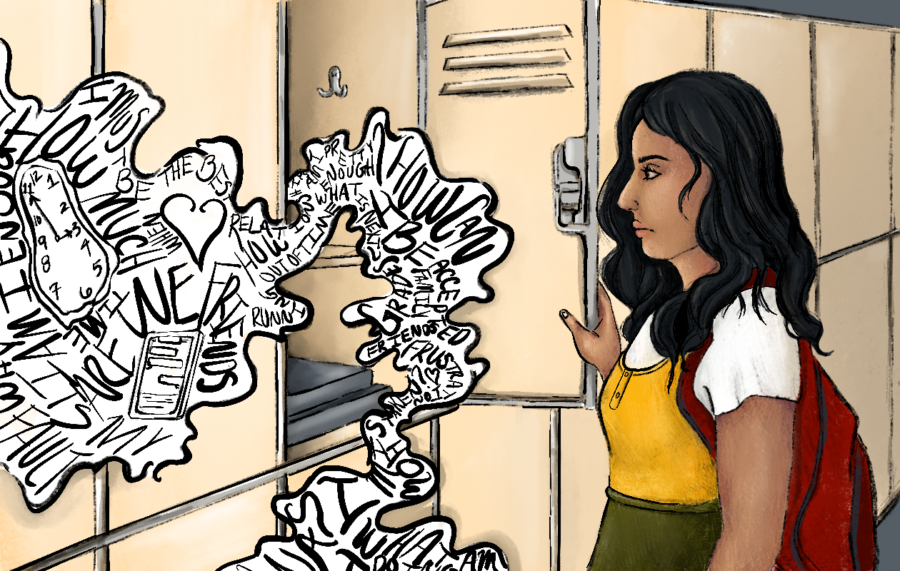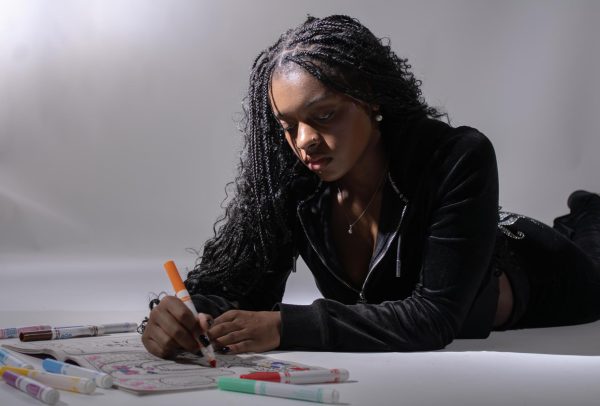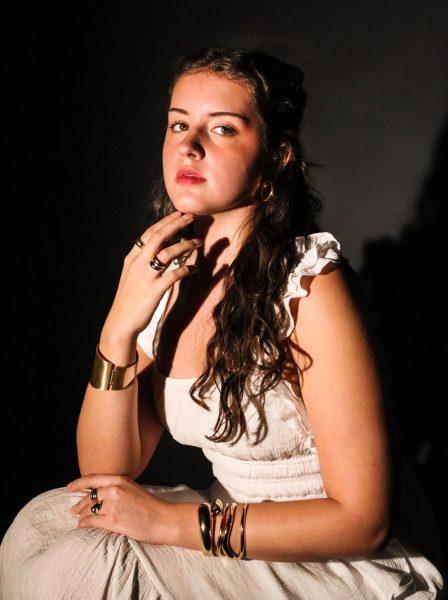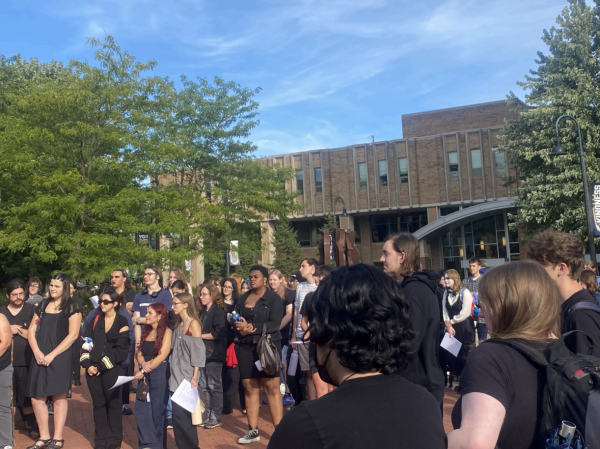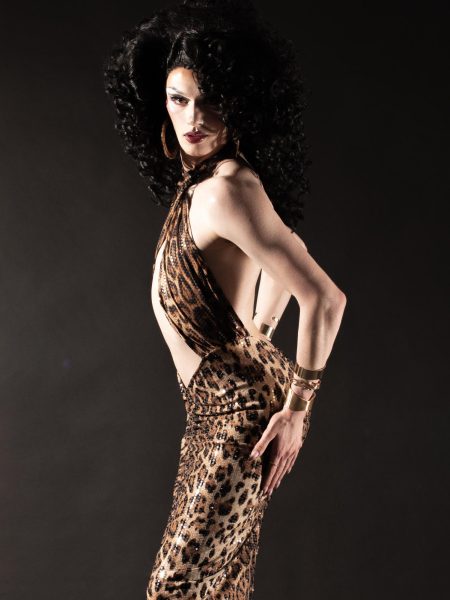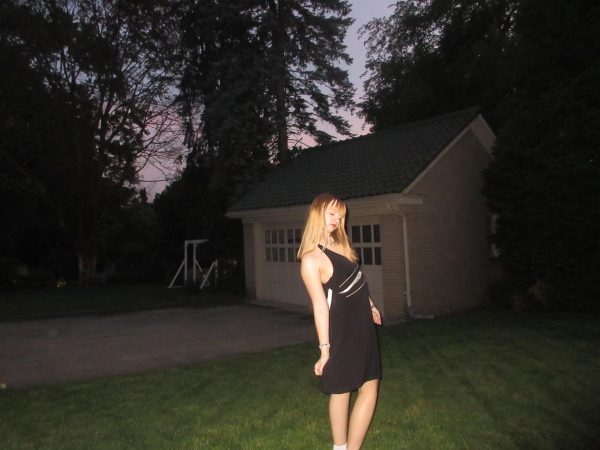‘never have I ever’…been amazed by one tv show
Never have I ever thought that another dramatic TV show on Netflix would be this hilarious, sad, uplifting and overall outstanding. The hit TV drama, “Never Have I Ever,” created by Mindy Kaling and Lang Fisher, has shook audiences with its never before seen look at a teen girl named Devi Vishwakumar, played by Maitreyi Ramakrishnan. She goes through high school facing normal teen problems, but the only difference is that the show centers around the fact that she’s Indian American. The Netflix show covers heavy topics. It not only shows what it’s truly like to be in a brown household, but also the intimidating age of high school and recovering after trauma.
Everything you need to know before watching:
In season one, 15-year-old Devi Vishwakumar enters her sophomore year of high school right after tragically losing her father during the middle of her orchestra concert. Following her father’s death, she loses the ability to use her legs, which sometimes happens after very traumatic events. Throughout the show, tennis player John McEnroe narrates Devi’s life. Comedian Andy Samberg and model Gigi Hadid also narrate various other characters in the show.
All Devi wants in her life starting her sophomore year is to fit in, which has not been going well because the whole school already knows her as “the girl whose dad died during an orchestra concert,” and “the girl who uses a wheelchair” and “…the only Indian girl in school.” All she wanted was to be popular and date her crush since elementary school (Paxton Hall-Yoshida, played by Darren Barnet), who was the hottest guy in school. During the first season, you’ll be introduced to the main characters: Devi’s best friends and her family. In the pilot, the plot will be introduced by McEnroe. The show is your average teen drama, covering topics like coming out in the LGBTQ+ community, the stigma and stereotypes of South Asian heritages and simply coming-of-age adulting.
Ending The Stigma:
Over the years, the TV and film industries have been trying to be more diverse by including all ethnicities, body types, races and sexual orientations. There have been many strides over the last decade in the entertainment world to represent more people on screen rather than predominantly focus on white characters. “Never Have I Ever” is a great example of South Asian representation, and more recently the new live-action “The Little Mermaid” made headlines for casting Halle Bailey as Ariel. There has also been controversy based on such matters, but showing more perspectives and experiences on screen leads to more people feeling represented.
Ramakrishnan talks about her opinion on said topic in an article on HuffPost: “…watching Devi grow this season, young South Asian women everywhere come to see pieces of ourselves reflected back.” As young kids see representation of their culture as the main character, it can truly inspire them.
Kristal Moseley, a senior fashion design major and A Magazine’s Diversity Committee Director, talks about her view on roles played in Hollywood. “I think it’s important for everyone to understand the fact that when we think of characters in film that aren’t specifically targeted towards a specific marginalized group, the default identities usually get assigned as white, cisgender and heterosexual,” Moseley said. “That is because that’s what is deemed as the norm in our society. However, for Black, brown and LGBTQ+ people our norm looks vastly different. Race and overall identity privilege play a major role in the media whether folks like to believe it or not.”
There can be a certain stereotype for cultures not typically represented in mainstream media, which can create a bad reputation for those ethnicities. In the latest season, with more South Asian characters added, Devi started to think in a stereotypical way. She quickly realized that if she is not a part of the stereotypes that society deemed her to be, then why would others be?
The amazing show that Netflix introduced to us all shook audiences as it impacted many people with South Asian heritage backgrounds. In Hollywood movies and shows, we rarely see South Asian actors and actresses as main characters.
The iconic show has shown thousands of viewers the growth the entertainment industry is heading towards. Hopefully, with the help of the large audience of “Never Have I Ever,” “The Little Mermaid” and more, we can change the way people perceive TV shows and movies, different ethnic backgrounds and the world’s view of stereotypes. Although there has been a lot of growth over the years, there is still more work to be done. This includes “Never Have I Ever,” which Netflix announced will be returning to our screens with season four coming in 2023.
Support Student Media
Hi, I’m Catie Pusateri, the Editor-in-Chief of A Magazine. My staff and I are committed to bringing you the most important and entertaining news from the realms of fashion, beauty and culture. We are full-time students and hard-working journalists. While we receive support from the student media fee and earned revenue such as advertising, both of those continue to decline. Your generous gift of any amount will help enhance our student experience as we grow into working professionals. Please go here to donate to A Magazine.

